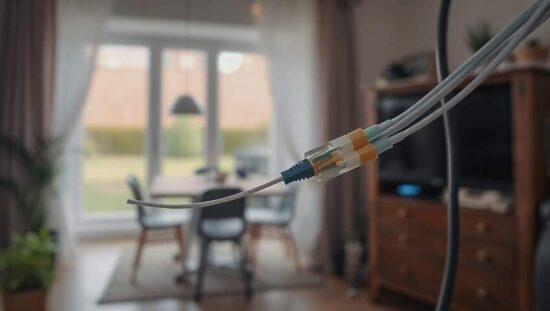German Fiber Optic Network Expansion Progresses, with No Immediate Disconnection of DSL Lines for Existing Customers
The head of the German Federal Network Agency, Klaus Müller, has reassured households with copper cable connections that they will not be forced to disconnect their DSL services once fiber optic connections become available. According to Müller, the agency’s primary goal is to encourage a voluntary transition to fiber optic, ensuring that no one is left without an internet connection.
Germany’s fiber optic network expansion has been making significant progress, with the agency reporting 5.3 million active fiber optic connections by the end of 2024. An additional 3.3 million customers can switch to fiber optic if they choose to, as long as they opt for a relevant contract.
Müller noted that the rollout of fiber optic in urban areas is relatively straightforward, whereas the rural landscape poses a more significant challenge.
Despite the progress, many consumers are still hesitant to sign up for fiber optic services. The agency chief himself refrains from making a recommendation for or against fiber optic connections, stating that the decision ultimately depends on individual needs and future requirements. “It’s an investment in the future” Müller emphasized, suggesting that even if a household does not currently require high-speed internet, a fiber optic connection can increase the value of their property.
The decision to switch to fiber optic is largely dependent on personal circumstances, according to Müller. “My two daughters, for instance, could not live without it” he said, referencing the needs of gamers and remote workers who require large data transfers. On the other hand, his parents, who do not require high-speed internet, are aware that a fiber optic connection can boost the value of their home.
In 2024, the agency received around three-figure complaints from consumers who felt pressured into signing up for fiber optic services by providers. The number of complaints was significantly higher at consumer protection organizations and local authorities, Müller reported.





